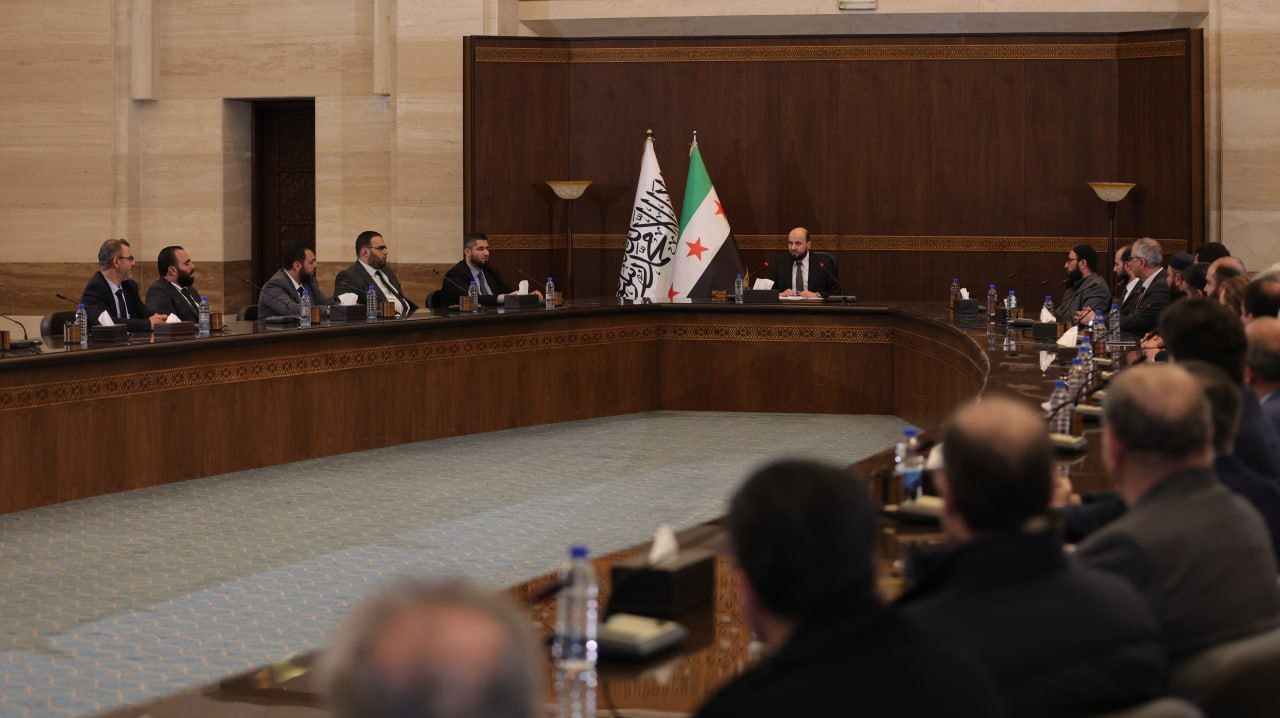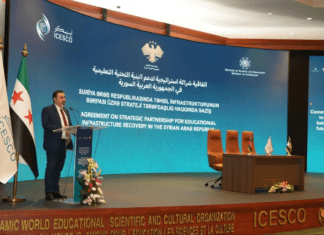
A new Syrian transitional government has been established, marking a pivotal step toward rebuilding the war-torn nation and laying the groundwork for a peaceful, stable future. Led by Muhammad al-Bashir, a 41-year-old former head of the Syrian Salvation Government (SSG) in Idlib, the transitional body aims to manage the country during a temporary period, fostering stability and preparing for national elections.
This body will oversee the country until March 2025. Its primary objectives include maintaining security, ensuring continuity of essential services, and addressing the aspirations of Syrians across all ethnic and sectarian lines.
The transition follows the former dictator Bashar al-Assad’s flight to Moscow on December 8, after the revolutionary forces’ successful Repelling the Aggression military campaign. The fall of Assad’s regime has left Syria at a critical juncture, the transitional government is tasked with stabilizing institutions and managing the peaceful handover of power.
Caretaker Prime Minister Muhammad al-Bashir emphasized the significance of cooperation between the remnants of the former regime and the new administration. “We hope the ministers of the deposed regime will assist their honorable successors during the transitional phase, especially in handing over files, to ensure continuity of services,” al-Bashir said during a televised address.
The transitional government includes experienced figures who previously served in the SSG of Idlib. This ensures that the administration is composed of individuals with experience in governance and crisis management. Among them is Muhammad Abdul Rahman, who now serves as the Minister of Interior. A former officer and graduate of the Military War College in Homs, Abdul Rahman brings a strong background in security and law enforcement, which will be vital for maintaining stability and security during this sensitive period.
The Ministry of Media is headed by Muhammad Yaqoub al-Omar, a graduate in political science who has emphasized the need for transparency and open communication with the Syrian people and the international community. Abdul Moneim Abdul Hafez, the Minister of Higher Education and Scientific Research, is an academic with a degree in natural sciences from the University of Aleppo. His expertise will play a key role in revitalizing Syria’s educational institutions, many of which have been devastated by years of conflict.
In the Ministry of Justice, a seasoned legal expert with a background in Islamic law has been appointed to oversee judicial reforms and ensure that the rule of law prevails in the new Syria. Meanwhile, Basil Abdul Aziz, the Minister of Economy and Resources, holds a degree in energy engineering and is tasked with stabilizing the country’s economy and managing its resources efficiently. His efforts will focus on rebuilding Syria’s economy and creating opportunities for its citizens.
Agriculture, a sector crucial for Syria’s recovery, is overseen by Muhammad Taha Al-Ahmad, an agricultural engineer with extensive experience. His ministry is working to revitalize farming and ensure food security for the population. Each of these cabinet members brings specialized expertise and a commitment to rebuilding Syria as a state that serves all its citizens. Their collective experience reflects the government’s aim to provide effective leadership during this transitional period.
Together, the ministers represent a blend of technical proficiency, administrative experience, and dedication to the ideals of the revolution, ensuring that the caretaker government is equipped to guide Syria toward stability and a brighter future. The cabinet draws on expertise from various professional and academic fields, reflecting its commitment to inclusivity and competency.
The new government faces significant challenges, including rebuilding infrastructure, reintegrating displaced populations, and unifying a fragmented nation. Security concerns remain a top priority, especially as the US and international partners continue operations against ISIS remnants in northeastern Syria.
The government also inherited the daunting task of addressing Syria’s economic collapse. Ministers are already working to integrate institutions from the former regime into the new framework and streamline services to avoid disruptions.
Syria’s new leadership has expressed a desire for balanced international relations based on mutual interests. A spokesperson for the Syrian Department of Political Affairs highlighted the government’s goals to establish justice, uphold the rule of law, and rebuild ties with regional and global allies.
“Our meeting with ambassadors from Arab countries and Italy was positive. We are committed to working harmoniously with the international community to fulfill the aspirations of our people,” the spokesperson said.
The Biden administration has voiced support for the Syrian-led transition but emphasized the need for inclusivity and non-sectarian governance. However, US Secretary of State Antony Blinken clarified that Washington is not yet prepared to reopen its embassy in Damascus. “Steps remain to be taken before we can fully recognize Syria’s new leadership,” he said.
Ukraine has indicated that it will open its embassy and reestablish diplomatic relations with Syria’s new government once it formally withdraws the previous regime’s recognition of Russia’s annexation of Ukrainian territory, signaling a fresh start in international diplomacy for Syria.
As Syria begins this historic transition, the eyes of the world are on Damascus. The success of this transitional body will determine whether the nation can rise from the ashes of war and build a future defined by peace, inclusivity, and resilience.








